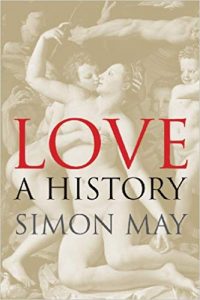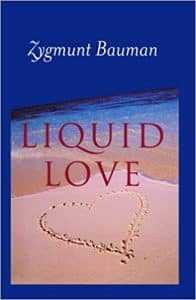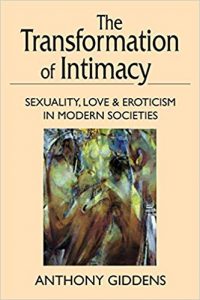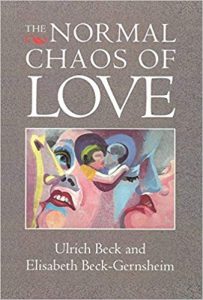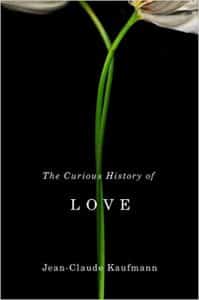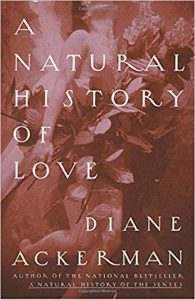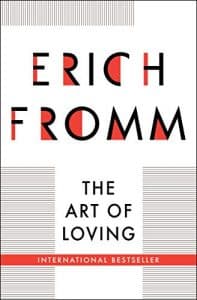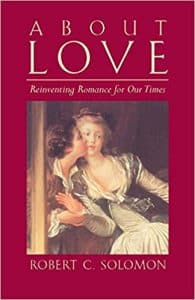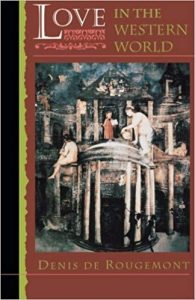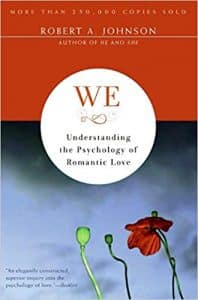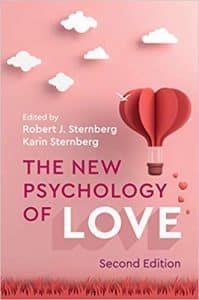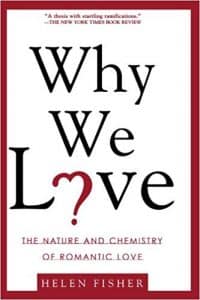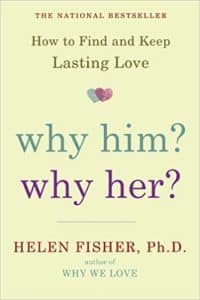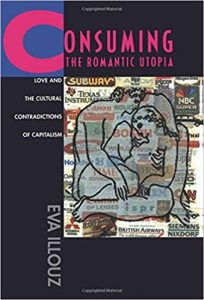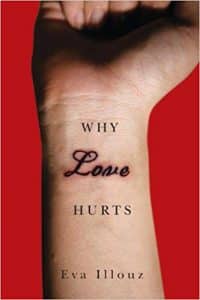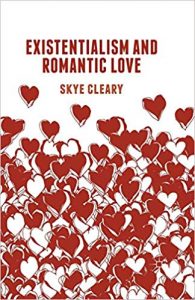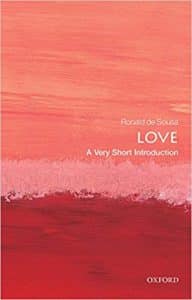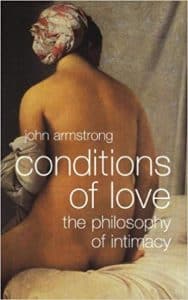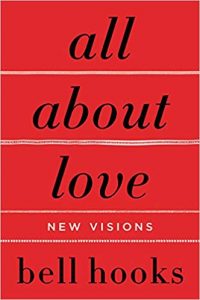9+ Nonfiction Books About Love that’ll change how you see romance
What are the best nonfiction books about love? Here are 9+ of my favorites that’ll teach you more about modern romance through the lens of history, psychology, philosophy, sociology, and more.
My Love of Love
As a Doctorate graduate, I’ve spent much of my academic life studying the nature of people’s romantic relationships. Love is a topic that continues to fascinate me!
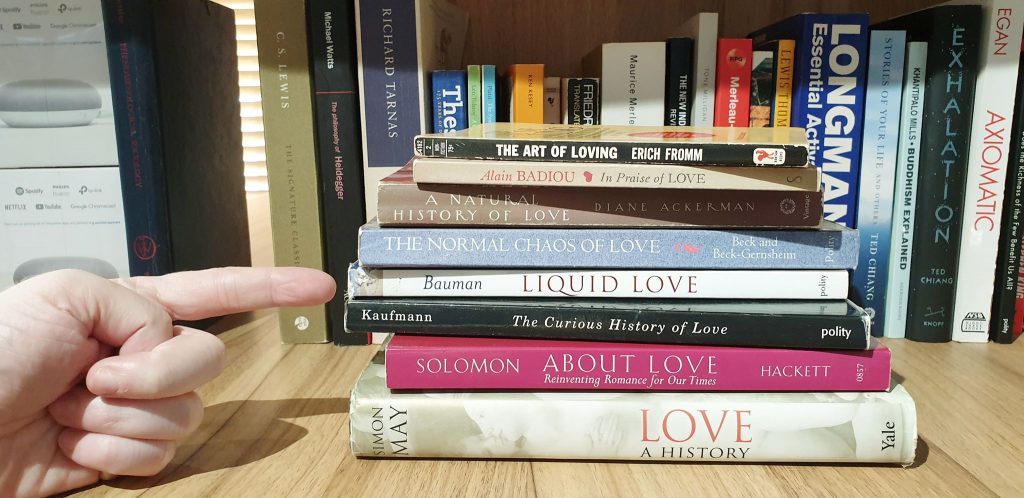
I’ve personally read and enjoyed all of the books I recommend here. Together, they cover a huge range of views on the topic which, above all, will help you understand the shifting nature of romance and intimacy in today’s modern world.
I feel reading should always be a pleasurable experience – never a chore. Thus, I’ve excluded certain nonfiction books about love that, in my opinion, may be a little too ‘wordy’ or convoluted. Instead, I’ll suggest only titles that are mostly written in easy language and relatable tones.
Enjoy!
Disclaimer: This post contains Amazon affiliate links. Find out more in our Privacy Policy page.
My picks of the best nonfiction books about love
Pin this list on your Pinterest!
1. Love: A History
Why do we treat love as a supreme human virtue? How did the idea of romance first come about? Has intimacy and marriage always been seen in the same light throughout the ages?
These are just some of the many thought-provoking questions philosopher Simon May raises in Love: A History. This book takes you on a grand tour of love’s evolution within Western cultures.
Beginning with early Hebrew scriptures, May traces how love was initially molded by the Greeks, adapted by the Romantics, and later taken up by Nietzsche, Freud, and other popular thinkers. He aims to show us how such vast historical influences have shaped our modern views of the emotion.
I regard Love: A History as one of the best nonfiction books about love available. It’s easy to follow, thanks to May’s clear thoughts and well-organized chapters. In short, he presents a great introductory read on the topic.
2. Liquid Love: On the Frailty of Human Bonds
Liquid Love is late sociologist Zygmunt Bauman’s attempt to answer key questions about modern love. Why are more and more people getting divorced? Are we finding it harder to commit to monogamous romance? Does our culture work against lasting feelings of intimacy?
Bauman’s central thesis is that a greater emphasis on individuality (i.e. heightened self-focus) has weakened traditional values of love, rendering long-term bonds more difficult to uphold.
I think it’s worth mentioning that Bauman was a ‘grand theorist’. Thus, his claims veer toward broad observations not supported by micro face-to-face research.
Yet, while at times reductive, I am still very much a fan of Bauman’s flowing, almost poetic style of writing. Liquid Love is a short read – but is filled with his incisive thoughts on the social impulses that shape our everyday experiences of romance. Overall, this is among the best nonfiction books about love you can read.
You might also like:
If you find yourself liking Bauman’s sociological work, you might also want to give Giddens’ The Transformation of Intimacy and Beck & Beck-Gernsheim’s The Normal Chaos of Love a try. Like Bauman, these authors offer many similar observations on Western intimacy and its many changes.
In addition, I think Kauffman’s The Curious History of Love is worth checking out. Akin to the scholars above, this book will likely interest anyone who wants to look at love via a sociological perspective.
3. A Natural History of Love
Of all the best nonfiction books about love, I think Diane Ackerman is by far the most gifted storyteller. Her words form beautiful prose, making her writing more emotionally evocative than those of pedantic scholars. Yet, amid her relatable style, A Natural History of Love is still very much grounded in thorough historical research.
Starting with Ancient Egypt, Ackerman takes you on an exciting journey through the evolving ages of romantic love. Each chapter also focuses on specific aspects of the human emotion. This includes, among other things, her exploration of the origins of kissing, and how physical desire came to be linked with feelings of ‘true love’.
Above all, I find A Natural History of Love to be packed with little nuggets of interesting info. You’ll learn a ton about the history of love, deepening your grasp of its many complexities.
Want to learn more about Jesus? Check out our great books for new believers!
4. The Art of Loving
Written by social psychologist Erich Fromm, The Art of Loving remains an international bestseller decades after its initial release. No surprise, seeing as the book is as relevant today as it ever was.
Like other authors, Fromm gives a sociological overview of the cultural forces that led us to think about ‘true love’ in certain ways. However, Fromm goes further by sharing how we can best carry out the pragmatic ‘art’ of loving others. This art involves discipline, patience, courage, and other daily practices.
Above all, Fromm strikes a strong balance between analyzing wider social factors and self-help advice. His clear and personable writing also makes the book a highly digestible read.
Parts of The Art of Loving may seem dated to some people. For example, Fromm holds a specific view of what counts as ‘ideal love’ – which might not fit with everyone’s definitions. He also tends to elevate heterosexual couples over others. This bias comes across as mildly archaic rather than intentionally malicious.
Overall, I think you’ll gain many life-affecting insights from The Art of Loving. In my opinion, this impactful classic is one of the best nonfiction books about love ever written.
5. About Love: Reinventing Romance for Our Times
About Love reads like a perfect mix of A Natural History of Love and The Art of Loving.
Similar to Ackerman, Solomon’s divides his book into short chapters that take you through love’s evolution. I especially liked his examination of Christian theology, the Middle Ages, Romanticism, and other key periods that have spurred how we view romance today.
Solomon also bestows sound advice to help us navigate the conflicts that can occur amid our modern intimate relationships. In addition, he also philosophically identifies some of love’s inherent paradoxes and its links to self-identity.
Overall, I see About Love as being among the best nonfiction books about love that anyone can learn from. I myself have extensively cited the book in my own graduate thesis.
You might also want to read de Rougemont’s Love in the Western World, which covers similar ground. However, his writing is much denser than Solomon’s. Thus, this book is more likely to appeal to scholars instead of casual readers.
6. We: Understanding the Psychology of Romantic Love
We smartly blends history, sociology, and psychology into a cohesive whole. Johnson is especially great at simplifying Jungian psychology into easy-to-grasp ideas and language.
Much of We focuses on the myth of Tristan and Iseult – a long-standing love story that many historians regard as a key influence of modern romantic ideals. Here, Johnson unpacks many of the myth’s narrative layers, explaining how each has played an implicit role in shaping our current expectations of love and intimacy.
Switching to psychology, Johnson also teaches us ways to shed our lofty, handed-down views of what romance ‘ought to be’. I especially liked his comparisons to “stirring the oatmeal”. He uses this analogy to explain how true intimacy lies in enjoying smaller moments shared with a partner – not striving for idealized visions of love.
Overall, I think We is an excellent read that, like Fromm, equips us with an enriched and more pragmatic appreciation of love and all its nuances.
7. The New Psychology of Love
Do you prefer concrete empirical data over abstract theories on love? Well, look no further than The New Psychology of Love!
The book is a collection of social scientific studies that explore love via diverse cultural and psychological contexts. Both quantitative and qualitative research are featured.
I found this collection to be an interesting read that showcases different scholars’ approaches to studying the same topic. Above all, The New Psychology of Romantic Love is a great overview of the relevant literature.
8. Why We Love: The Nature and Chemistry of Romantic Love
Biological anthropologist Helen Fisher offers a unique take on romance. In Why We Love, she combines her scientific findings with cultural insights, concluding that love is actually hardwired into our brains. However, this genetic disposition is entwined with our social environment, affecting how we choose our intimate partners.
Among the most cited scholars in the field, I especially liked Fisher’s attempt to distinguish between lust, infatuation, and love. In fairness, I think her definitions are partly shaped by her own preconceived notions of these romantic states. Regardless, I find Why We Love to be one of the best nonfiction books about love out there.
Fisher has also released other popular books on romance worth reading. I suggest giving Why Him? Why Her? a go. It pivots between self-help and anthropological research, and will likely appeal to you if you’re looking to improve the quality of your romantic relationships.
9. Consuming the Romantic Utopia: Love and the Cultural Contradictions of Capitalism
We tend to think of love as something privately shared between two people. However, sociologist Eva Illouz believes a lot of what we feel is in fact subconsciously stirred by social trends – in particular, capitalism and our culture of consumption.
In Consuming the Romantic Utopia, Illouz explores how modern capitalist societies have pushed grand ideals of love upon us. Mass media (in the form of images, movies, songs, etc.) has a prime role in inclining us to ‘buy into’ engineered romantic narratives. This in turn creates impractical hopes for intimacy that, in effect, usually lead to our disappointment.
In my opinion, Illouz succeeds at making us more aware of how our acts of consumption tie in with our unrealistic romantic goals. Yet, instead of feeling resigned, her underlying goal is to help people free their love lives from jaded conformity and social pressure.
Illouz has also published other books about romance and love, including Why Love Hurts – which further extends her main sociological thesis.
More best nonfiction books about love worth reading
Existentialism and Romantic Love
I think love is, by its very nature, existential. This imaginative book looks at the human emotion through the eyes of five Existential philosophers.
Love: A Very Short Introduction
Love: A Very Short Introduction does exactly what its name suggests. The book is a great summary of key ideas relating to love, covering the Ancient Greeks, psychology, philosophy, and more. Brief but very informative!
Conditions of Love: The Philosophy of Intimacy
Armstrong’s philosophical read is an empathetic look at love and intimacy, written with great nuance while being easy to follow.
All About Love: New Visions
Bell Hooks opens our eyes to often overlooked gendered aspects of love and romance. Witty with razor-sharp feminist insights!

